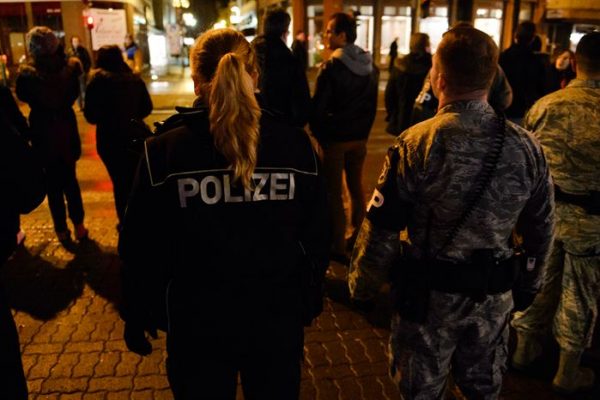Last Tuesday, the Bavarian federal parliament passed a new law that gives unreasonable and excessive powers to its police. The legislation comes less than one week after 35,000 people protested against the law at the biggest demonstration in Munich in half a decade.
The Bavarian parliament has full authority of its police, according to federalisation laws instituted after the fall of the Nazi regime. Yet, with Horst Seehofer acting as Minister of Interior in the new German central government, the state law may become a blueprint for the police laws in the whole Federal Republic of Germany – a troubling sign of times to come.
Indefinite imprisonment and repression without a cause
The bill drastically changes the preventive policing. Two terms are central: “Gefährder” (endangerer) and “drohende Gefahr” (imminent danger). The old police law did not allow indefinite detention. Now, “Gefährder” can be held in prison indefinitely without having committed a crime, as long as a judge confirms the arrest every three months. Before, police needed a “konkrete Gefahr” (concrete danger) to intervene for crime prevention. Now, “drohende Gefahr” is enough. This massively lowers the bar for police intervention, blurring the line between police and intelligence services and leaving room to install a kind of “secret police”. The legal definition of the imminent danger is long, confusing and difficult to grasp, in stark contrast to the clear definition of the old concrete danger. Chances are, ordinary police forces on the ground will themselves not know when they may, should or must intervene. Numerous breaches of people’s fundamental rights will inevitably follow.
A broader reactionist agenda
Unfortunately, police legislation is only the most prominent part of a whole line of reactionary initiatives by the CSU. The ruling party has repeatedly invited Viktor Orban to their meetings. Recently, the Bavarian prime minister installed crucifixes in every administrative building in Bavaria, which was heavily criticised even by the Catholic Church itself. Only weeks ago, the CSU had to take back plans for a so called “Psychiatric Help Act”. It was supposed to do away with the difference between criminals and the mentally ill, introducing an online register of people in psychiatric treatment so the police could prevent “danger” from them. After massive criticism, they dropped the most disgusting parts of it, including the central register, in fear of public opinion.
Bavaria’s Constructive Disobedience
Concerning the police law, though, CSU seems to keep their hardline course. As one Conservative MP put it on Twitter: “30,000 people protested (…) So the silent majority of people stands with us”. Apart from the apparent absurdity of this argument, the whole assumption may be wrong. It’s true, the CSU have ruled Bavaria for over half a century. But standing against the repressive police law is a broad public coalition, mostly consisting of progressive parties and movements, but also neoliberal FDP, “Free voters” and many “ordinary” people. “Live and let live” is a common saying, and political authorities are generally not to be trusted.
What will happen now?
Of course, progressives will challenge the police bill in Bavarian and German constitutional courts, but this may take years. In autumn, the Bavarian state election is going to take place. The ruling CSU will most probably win the election, but a bad result – or even polls before – may change their minds. Weak approval rates are also a reason for the recent reactionary course now. Compared to 2016, the CSU has lost seven percentage points in polls. The party fears competition from right-wing extremist AfD. Yet in the recent central government election, the CSU has lost more voters to neoliberal FDP than the AfD. So internally, some party strategists call for caution with the new course. In vain. Many top-tier CSU officials are convinced right-wing populists. They use the AfD only as a pretence for reactionary policies they themselves crave – even if this appals a lot of voters. Only if approval rates keep falling, they may choose power over ideology.
Rebel City Munich
The progressive opposition is deeply concerned but won’t resign. Last week’s protest has shown how we can unite behind an idea of a free and open society. Many young people protested, emancipating themselves from a government they neither understand nor support.
It seems too early to expect a political revolution in the German south-east. But 100 years after independent socialist Kurt Eisner proclaimed the free state of Bavaria, European progressives should watch closely. At DiEM25, we stand in solidarity with the people of Bavaria and utterly condemn the new police law. “For the loser now, will be later to win…”
Do you want to be informed of DiEM25's actions? Sign up here










